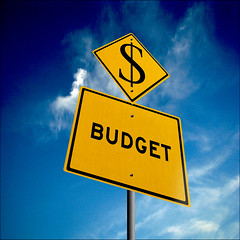| budget (Photo credit: 401(K) 2013) |
Washington, Apr.24, stock trade .- President Obama’s budget would raise taxes mainly on people earning more than $200,000 a year, although earners at nearly every income level would face a somewhat higher tax burden, according to a new nonpartisan analysis.
The study by the Tax Policy Center finds that in 2015, 86 percent of the increase in taxes would be borne by people earning $200,000 or more a year. That would largely be a result of dramatically scaling back tax breaks that disproportionately benefit the wealthy and establishing a minimum level of taxation for people who earn $1 million a year.
Explore President Obama's proposed spending for fiscal year 2014 and see how it compares with plans approved by House Republicans and Senate Democrats.
But the study also finds that some Americans of more modest backgrounds would face more taxes. Some people earning between $100,000 and $200,000 a year would pay about $150 more, while some earning less than $100,000 a year would pay less than $100 in additional taxes.
The increase in taxes on middle-class earners is notable because both political parties have said that they do not want to raise taxes on people earning less than $200,000 a year. The president’s budget was released this month but is not expected to be taken up by Congress anytime soon.
“We knew the president wanted to raise additional revenue focused on high-income folks,” said Donald Marron, director of the Tax Policy Center. “The old idea of not raising taxes on people earning below $200,000 and $250,000 seems to have gone away.”
The higher taxes would result primarily from two proposals in Obama’s budget. One would raise taxes on tobacco products, affecting rich and poor smokers alike — the tax on a pack of cigarettes would increase from $1.01 to $1.95.
The second proposal is more technical, affecting the value of the personal exemption and standard deduction as well as the income thresholds for different tax brackets. These are adjusted upward each year to account for inflation.
A new formula would increase them more slowly, meaning that deductions and exemptions would have slightly less value each year than they do under the current system and additional income would more rapidly shift an earner into a higher tax bracket.
With the release of the analysis, White House officials noted that the increase in tobacco taxes would discourage unhealthy behavior and would fund a broad expansion of early childhood education, echoing previous administration comments.
“That is a place where we are making a decision that we believe that additional revenue is justified for the positive that it serves in terms of early childhood and the deterrent effect that it has on smoking,” National Economic Council Director Gene Sperling said this month at a news briefing.
Raising taxes “has the biggest impact on youth smoking . . . young people are the most sensitive to changes in the price,” Domestic Policy Council Director Cecilia Munoz said at the briefing.
Under Obama’s budget, the average person earning between $200,000 and $500,000 would pay $2,235 more a year, while millionaires would pay $82,604 more on average. High-income earners were hit by an income tax increase at the beginning of this year.





No comments:
Post a Comment